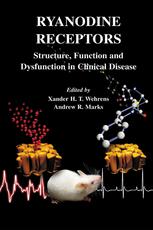

Most ebook files are in PDF format, so you can easily read them using various software such as Foxit Reader or directly on the Google Chrome browser.
Some ebook files are released by publishers in other formats such as .awz, .mobi, .epub, .fb2, etc. You may need to install specific software to read these formats on mobile/PC, such as Calibre.
Please read the tutorial at this link: https://ebookbell.com/faq
We offer FREE conversion to the popular formats you request; however, this may take some time. Therefore, right after payment, please email us, and we will try to provide the service as quickly as possible.
For some exceptional file formats or broken links (if any), please refrain from opening any disputes. Instead, email us first, and we will try to assist within a maximum of 6 hours.
EbookBell Team

0.0
0 reviewsIn recent years, the ryanodine receptor has emerged as a new and very promising target for the treatment of several cardiovascular disorders, including cardiac arrhythmias and heart failure. This volume is the most current publication devoted to the major intracellular calcium-release channel, the ryanodine receptor.
"In this series of brief but informative chapters, the contributions progress from the basic gene family and primary structure, through its 3D structure so far, to its regulation and physiology."
David E. Clapham, MD, PhD
Professor of Neurobiology and Pediatrics
Harvard Medical School
Dr. Xander H.T. Wehrens received his M.D. and Ph.D. degrees from Maastricht University in the Netherlands. His research has mainly concentrated on molecular mechanisms of cardiac arrhythmias, in particular in the setting of inherited arrhythmogenic syndromes and congestive heart failure. This work has led to the development of novel anti-arrhythmic therapies. He is currently a research scientist in the Department of Physiology and Cellular Biophysics at the College of Physicians and Surgeons of Columbia University.
Dr. Andrew R. Marks is the Chair and Professor of the Department of Physiology and Cellular Biophysics at Columbia University College of Physicians and Surgeons. Dr. Marks' research has focused on understanding how macromolecular signaling complexes regulate ion channel function in muscle and non-muscle systems, and on the regulation of vascular smooth muscle proliferation and migration. His work has contributed new understandings of fundamental mechanisms that regulate muscle contraction that have lead to the discovery of molecular defects that contribute to heart failure and fatal cardiac arrhythmias.